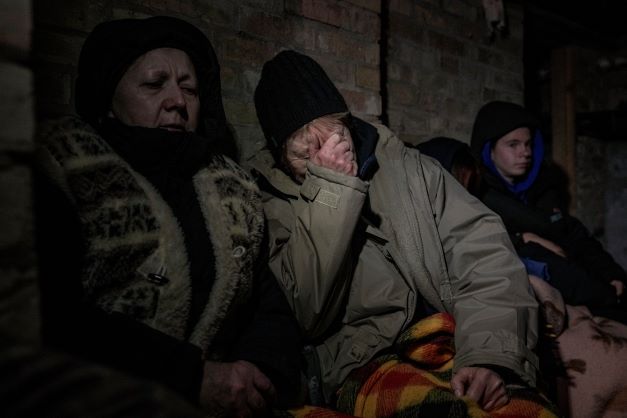
by Elaine Monaghan | 3 Mar 2022 | Conflict, Future of Democracy, Immigration, Politics, Refugees, Ukraine, World
Russia’s invasion of Ukraine begs questions that most young people have never asked. Here’s how to make sense of the conflict at the heart of Europe. A woman cries in a house crowded with people seeking shelter from Russian airstrikes, outside the capital...
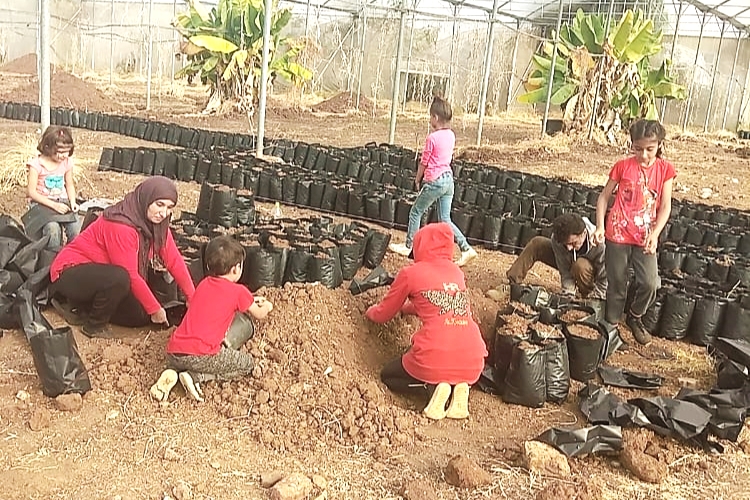
by Katharine Lake Berz | 1 Feb 2022 | Conflict, Educators' Catalog, Human Rights, Immigration, Middle East, Refugees, University of Toronto Journalism Fellows
Lebanon is suffering one of the worst crises the world has seen in 150 years. The children in one Syrian refugee family have little choice but to work. The Hemo family working in a greenhouse where they earn $10 a day for their labour, November 2021 (All photos by...
More than half a million refugees have fled Ukraine since war broke out one week ago, with more still fleeing the fighting. Throughout history, displacement has gone hand-in-hand with conflict. Decades of violence in Afghanistan displaced more than 2.6 million refugees, with thousands more fleeing last autumn after the U.S. troop withdrawal. (Some, like correspondent Zamir Saar, sought refuge in Ukraine.) According to the UNHCR, since 2011, the crisis in Syria has forced 6.8 million people to leave their country, with another 6.7 million internally displaced.
Now, an estimated 1.5 million Syrian refugees are living in Lebanon, including Sanam Hemo, her husband, and their seven children. While Lebanon provides safety, the country is experiencing a dire economic crisis, leaving no choice but for all family members — even their four-year-old — to work. Katherine Lake Berz, a journalism fellow at the University of Toronto, gives an up-close account of the reality of refugee life for Sanam’s family and how organizations like UNICEF Canada are seeking solutions to child labor.
Exercise: Ask students to put themselves in Sanam and Othman’s shoes. What would they do differently? What would they do the same?
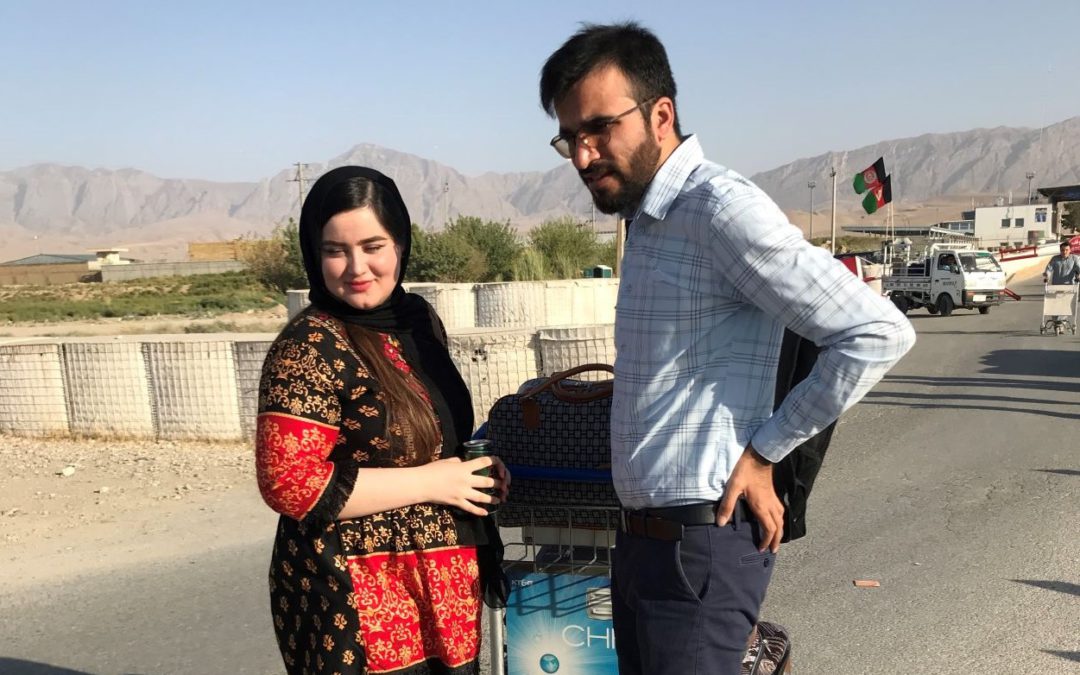
by Zamir Saar | 16 Nov 2021 | Asia, Conflict, Educators' Catalog, Eyewitness, Human Rights, Identity, Immigration, Islam, Personal Reflections, Refugees, University of Toronto Journalism Fellows
My pregnant wife and I were lucky to escape Afghanistan after it fell to the Taliban. We have swapped danger for refuge and bewilderment in Ukraine. The author and his wife bid farewell to their families at the entrance to Mazar-e-Sharif airport in Balkh province,...
Journalist Zamir Saar delivers a first-hand account of his and his wife Kamila’s experience escaping Afghanistan after the country fell to the Taliban in August. Grateful for refuge in Kyiv, Ukraine, far from the violence and downward economic spiral that face their native land, Zamir and Kamila — five months pregnant at the time they fled — now find themselves unsettled by makeshift living arrangements and uncertainty about their future. As Zamir notes, the hardest part has been leaving the familiar spaces in their home towns and finding nothing so far to replace them in their new environment. But there’s also recognition that there’s only so much a receiving country like Ukraine can do.
Exercise: Ask students to think about what makes them feel most at home and how they might recreate those things in an unfamiliar environment.
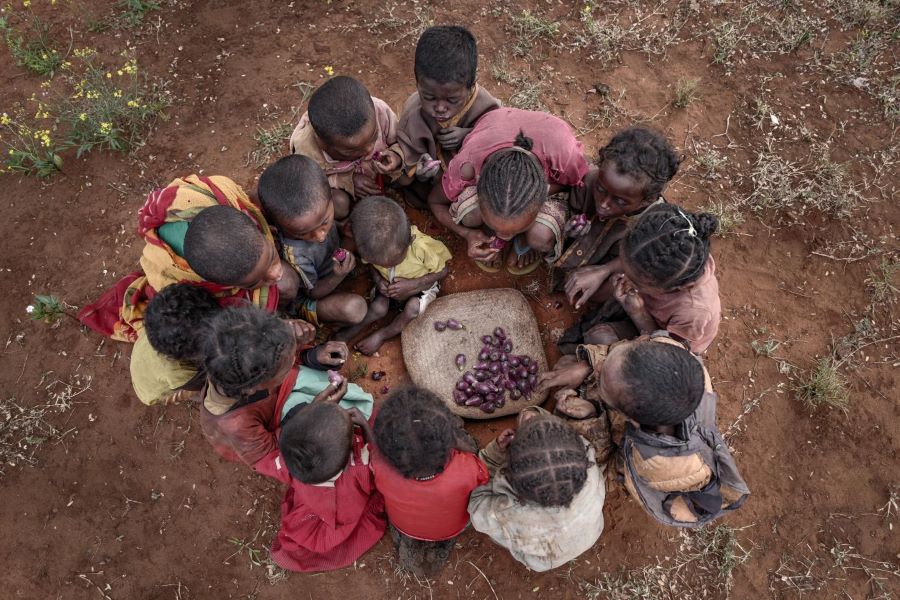
by Jeremy Solomons | 29 Oct 2021 | Africa, Climate change, Environment, Immigration, Refugees
Africa has contributed very little to global warming. But the continent is the most vulnerable to the impact of climate change — and already suffering. Children in Madagascar. The United Nations estimates that at least half a million children under the age of...
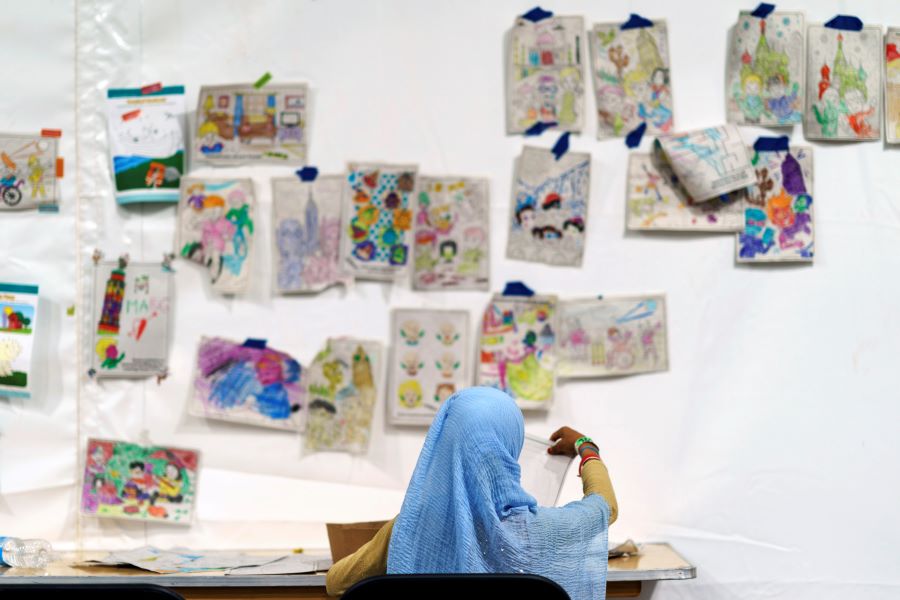
by Natasha Comeau | 20 Oct 2021 | Asia, Conflict, Human Rights, Immigration, Refugees, Terrorism, World
After Kabul fell to the Taliban, the hurried evacuation of Afghans and COVID-19 have complicated efforts to find the refugees new homes overseas. A child holds up a piece of artwork while drawing in a tent at U.S. Fort Bliss, in New Mexico, where Afghan refugees are...
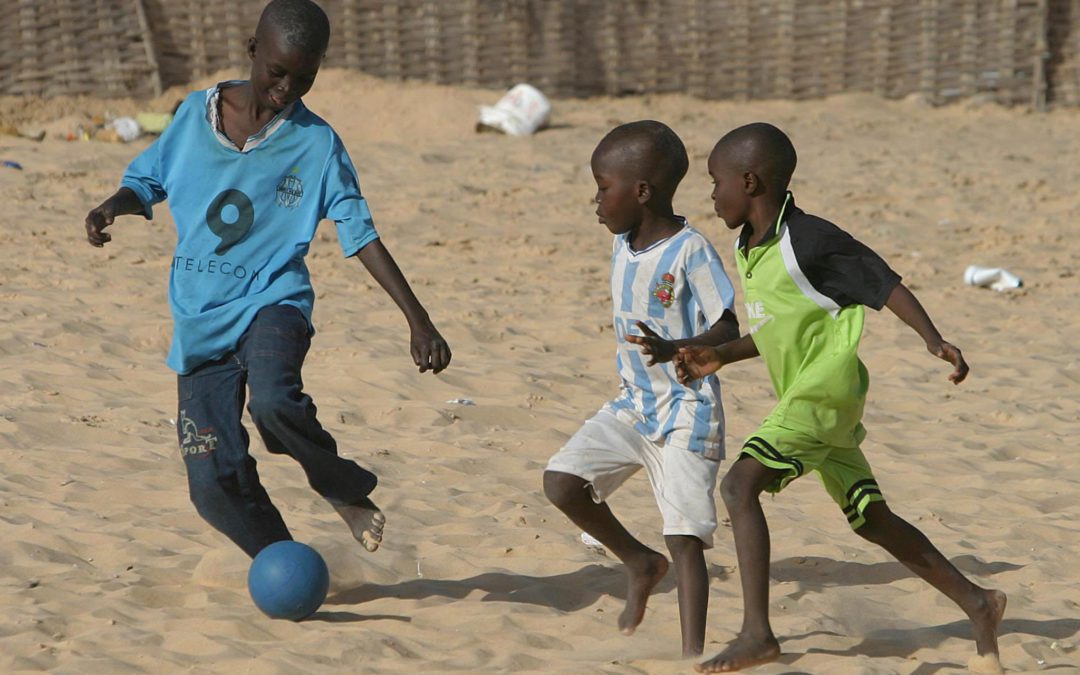
by John Mehaffey | 22 Jul 2021 | Educators' Catalog, Refugees, Sport, World
Wesley Mukerinkindi and Gaetan Ekoondo wanted to help youth pitch their skills to professional sports teams. Here’s what they created. Senegalese boys play football in Dakar, Senegal, 26 January 2005. (EPA Photo/Nic Bothma) Wesley Mukerinkindi was just two years old...
Students often wonder how they can make a difference in the world. Wanting to give back to their communities, young entrepreneurs Wesley Mukerinkindi and Gaetan Ekoondo — whose families fled from violence in Rwanda and the Congo when they were children — launched Search Your Team to create equal opportunities for other refugees and underprivileged youth through sports. News Decoder correspondent John Mehaffey interviews Mukerinkindi to learn how the pair were inspired to start the online platform, which helps youth athletes reach their dreams by showcasing their abilities to professional soccer clubs or college basketball teams.
Exercise: Ask students how their personal passions or experiences might be an inspiration to start their own community project and support other young people.
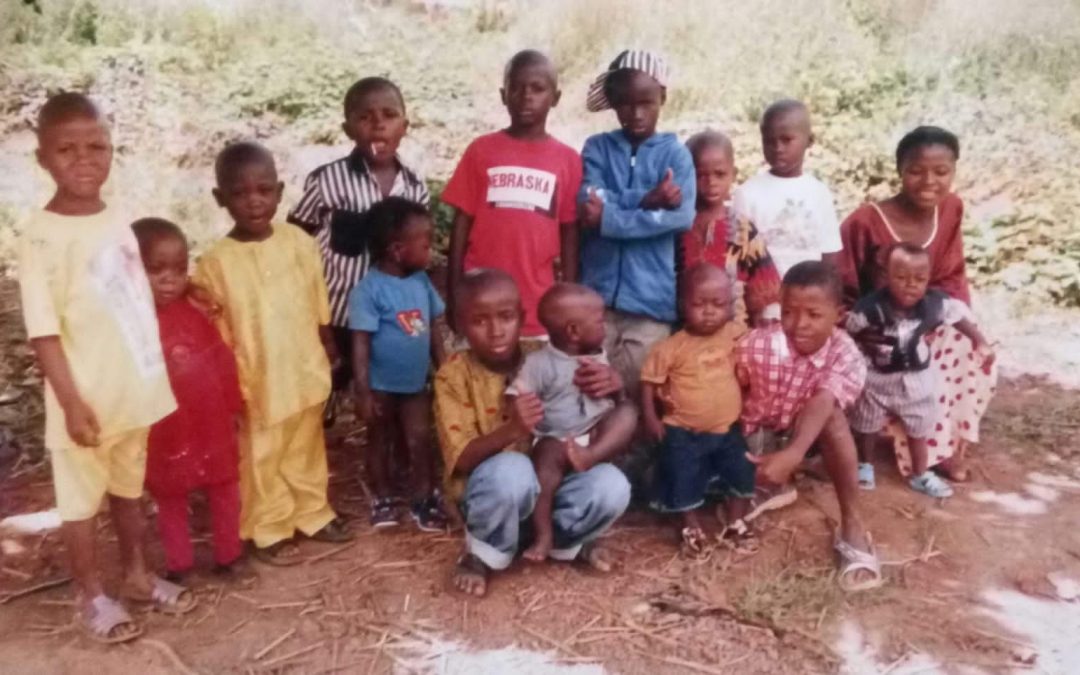
by Varlee S Fofana | 10 Nov 2020 | Africa, African Leadership Academy, Contest winners, Discovery, Educators' Catalog, Identity, Personal Reflections, Refugees, Student Posts, Youth Voices
My family fled civil war in Liberia to a refugee camp in Guinea in West Africa. I learned the power of resilience and the value of diversity. The author, in white next to the woman on the right, at the Kouankan refugee camp in Guinea This story won first prize in News...
News Decoder’s goal is to create a global community, and Varlee Fofana has added his unique voice to the conversation with an essay about growing up in a refugee camp in Guinea. Not many News Decoder students have had to flee civil war as Fofana did, yet many play football, as the author did to connect with other refugee children. Gathering wood, plowing farmland or selling kerosene might not be common chores for most News Decoder students, but they, too, face challenges. Ask your class to read Fofana’s story and then, in up to 600 words, describe a personal experience that shaped their life and character. Encourage them to follow Fofana’s example by using simple words and an unassuming tone to draw readers into their world.
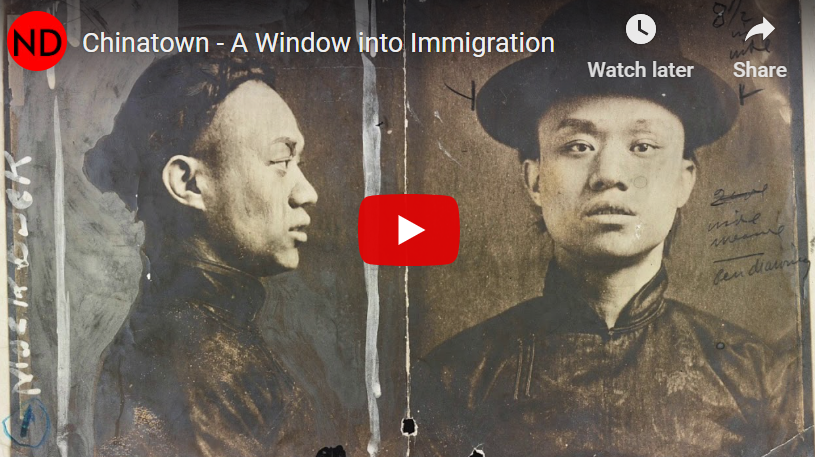
by Maya Barr | 6 Jul 2020 | Immigration, Refugees, Youth Voices
I’d gone to Chinatown before, but only when I looked closely did I see how waves of immigration have shaped its character and history. It is easy to take for granted the lessons one can learn just a subway ride away. I live in New York City, not too far from...
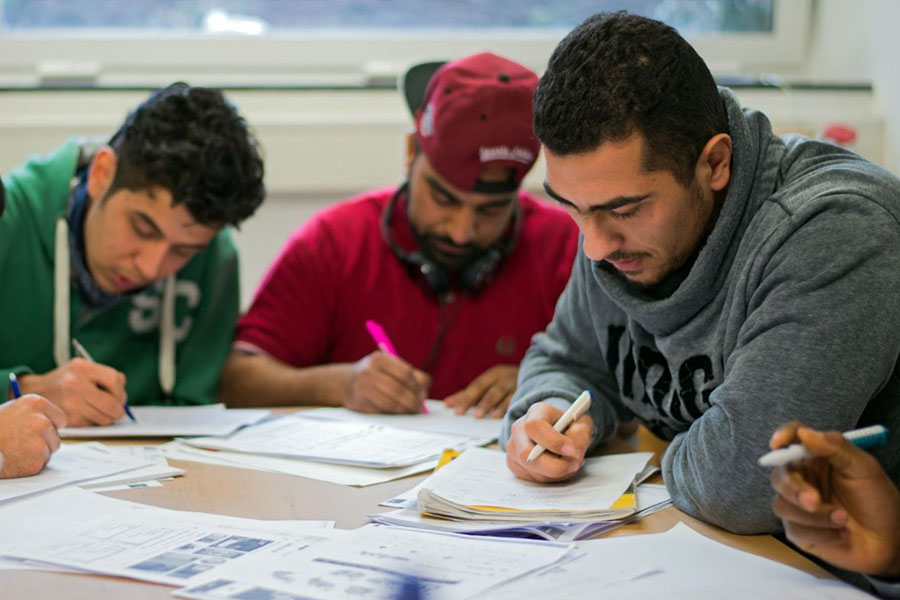
by Helen Womack | 1 Jul 2020 | Europe, Immigration, Refugees
The EU has been criticized for inconsistency towards asylum seekers. But some European nations have admitted refugees — who are now paying back. Asylum seekers attend a German language course in Vienna, Austria, 23 February 2016. (EPA/CHRISTIAN BRUNA) The grand...
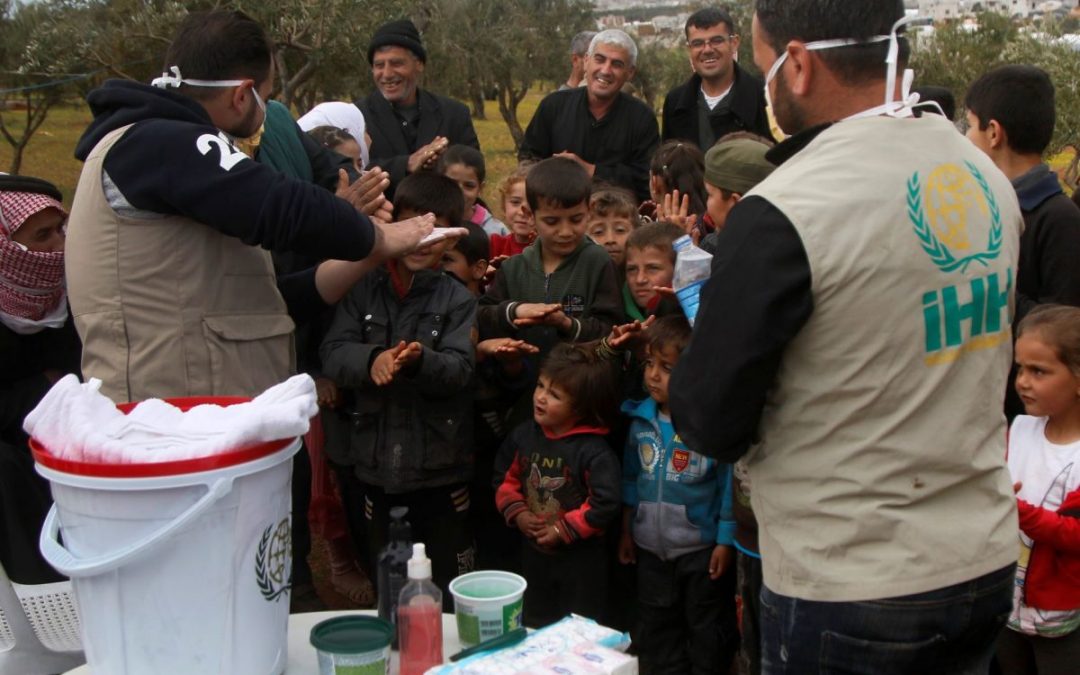
by Marwa Awad | 5 May 2020 | Health and Wellness, Refugees
While comfortable in COVID-19 lockdown in Rome, I think of refugees of war in Iraq and Syria who are also isolated, but desperate and without a choice. As a humanitarian worker who has worked in Iraq, Syria and lately Italy, I have witnessed close-up how isolation and...










